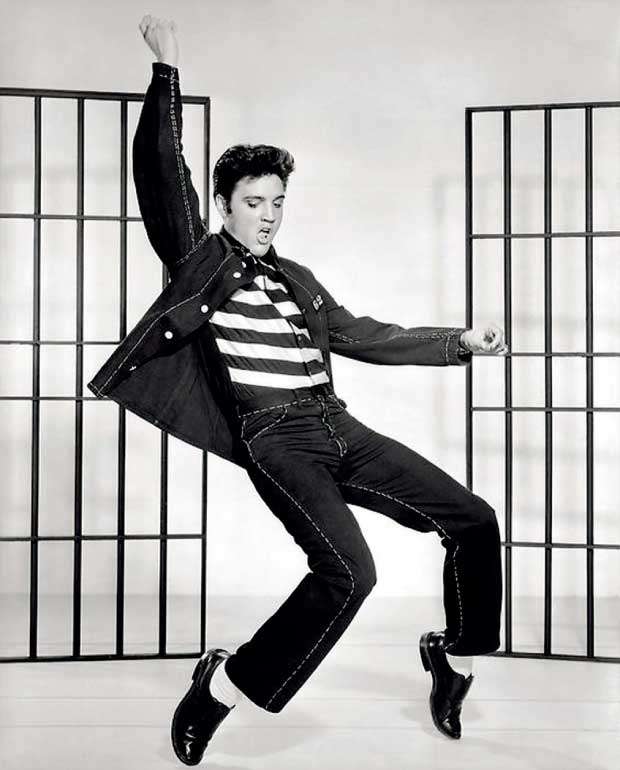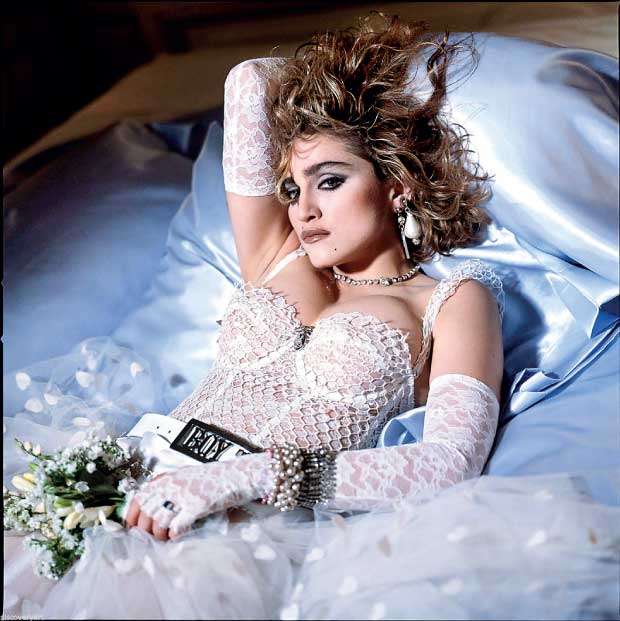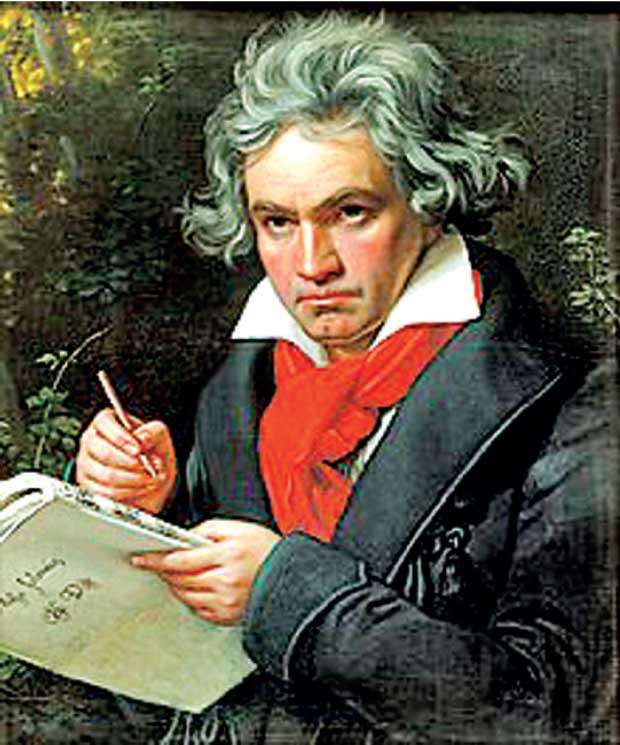Reply To:
Name - Reply Comment
Last Updated : 2024-04-19 16:08:00

 Music is there to entertain? It is also there to rebel, as a highly potent means of protest. This is true of Beethoven’s Ninth Symphony as well as Elvis Presley, Chuck Berry and Rock n’ Roll. It has been said that rock music played a key role in bringing down the Berlin Wall, and that’s very true.
Music is there to entertain? It is also there to rebel, as a highly potent means of protest. This is true of Beethoven’s Ninth Symphony as well as Elvis Presley, Chuck Berry and Rock n’ Roll. It has been said that rock music played a key role in bringing down the Berlin Wall, and that’s very true.
Beethoven, a musical rebel to the core, threw the rule book to the winds and wrote music which epitomized his political idealism, as well as eventual disillusionment, and we can see this process clearly in the nine majestic symphonies he wrote. But classical music remains esoteric to the masses and its folk music and pop which speaks to the heart of the common man and woman. Folk music has been a medium of protest against social injustice down the ages, all over the world. The rebellious side of pop may be less obvious, but it is very much there, to body gyrations of Elvis to the guitar burning of Jimi Hendrix.
The protest can come in many forms, from the dress, make up and instrumentation to the lyrics. ‘Protest’ and ‘rebellion’ doesn’t always mean a call to arms. Pop musicians, being what they are, have rebelled against convention, which includes conventional morality. That is what ‘Elvis the Pelvis’ was about. What he didn’t say in so many words, he demonstrated with clear body language, and Chuck Berry’s duck walk, cool manner and outlandish guitar playing helped break down racial barriers in the segregated American South.
Two other ‘non extreme’ examples come to mind: Glen Campbell’s ‘Try A Little Kindness’ and ‘Just Another Day in Paradise’ by Phil Collins, which is really about degrading poverty in the Third World. Even Michael Jackson’s ‘Heal The World’ can be interpreted as an anti-war song and a passionate appeal for peace
All over the world, pop music has been a liberating influence, helping bring about more relaxed modes of behaviour for the young and alarming peer groups and the established order. Rock music was banned in much of the former Soviet bloc, as it is now in many Islamic fundamentalist states (check out MTV’s Rebel Music series).
But protest music isn’t always in-your-face. Pete Seeger’s celebrated anti-war song ‘Where Have All the Flowers Gone’ remains unmatched since for its gentle lyricism, simple yet compulsive imagery and beauty of melody. Seeger fashioned his anti-establishment songs out of folk roots.
Two other ‘non extreme’ examples come to mind: Glen Campbell’s ‘Try A Little Kindness’ and ‘Just Another Day in Paradise’ by Phil Collins, which is really about degrading poverty in the Third World. Even Michael Jackson’s ‘Heal The World’ can be interpreted as an anti-war song and a passionate appeal for peace.

‘Winds of Change’ by the Scorpions is more about the dramatic changes wrought in Gorbachev’s USSR in which the underground pop and rock so hated by the Soviet regime played such a key role (a tradition continued by the contemporary all-girl group Pussy Riot who attack Putin and the orthodox church). Then there are non Western singers such as Bob Marley, Miriam Makeba and Eddie Grant who, in their particular contexts, protested against poverty, hunger and political oppression.
I have often wondered why we don’t have a tradition of protest songs. Our folk songs are full of pathos, yearning, sentimentality and humour, but there is hardly any rage against oppression. Come to modern times, our pop music is tender, sentimental, sad and then again full of joy. But there is nothing burning down there, no sense of outrage at the standing order. It’s rather tame pop music.
Someone can quip that we are not Westerners. But rebellion isn’t anything Western. Our entire history is one of constant rebellion and bloodbaths. Our post-independence history isn’t any more cheerful. But our music (except the drumming) and especially the song have never been seen as a form of protest and mass communication. This is very odd especially in modern times. Elements of it can be found in Baila (from Anton John to Sunil Perera), but these are exceptions to the rule. When Clarence Wijewardane sings: ‘Api baila kiyanawa, poyata siluth gannawa, randuth wenawa…’ (we can sing baila, and quarrel, too, just as we become pious on Poya Day) it’s a sardonic self-assessment and heartfelt lament from a pop demi-god to the musical rebel that he could not be.
The debut of Madonna’s ‘Like a Virgin’ has to be remembered with her shocking stage attire – she sang and danced on stage in white lace, the yin version of Elvis Presley’s shiny silver outfits and pelvic thrusting
This is in stark contrast to parts of Asia, where pop music and other Western forms such as rock have been effectively adapted into forms of social protest and criticism in countries such as Thailand and Indonesia. In Pol Pot’s Cambodia, pop music was seen as an evil and many musicians were murdered.
Some contend that Nanda Malini is a musical rebel because of her Pawana programme. The problem is that her protests remain entirely one-sided. Whatever her ideology is (she certainly isn’t liberal or leftist), her Pawana songs, coming at a time of JVP-led rebellion against the centre-right UNP regime of J. R. Jayawardene, were seen by many as a protest against the UNP’s capitalist, neoliberal and undemocratic excesses, and sections of the JVP thought that Pawana echoed their sentiments.

All that is history now. But when ultra nationalist Mahinda Rajapaksa and his brothers imposed an even more brutal version of neoliberal, undemocratic capitalism on us, and began their bloody ‘humanitarian mission’ against the LTTE (the Tamils, too, are Sri Lankans, by the way) she remained silent. When asked by a Ravaya correspondent the reason for that, she responded by avoiding the question.
So much for Nanda Malini’s musical rebellion.
Of course there is now the phenomenon of Ajith Kumarasiri, the bilingual singer-song writer. This is not the place for a full discussion of his work and impact, and it’s too early to say if he’s a one-off phenomenon or the start of a new tradition of musical rebellion in this country, for he’s certainly a musical rebel.
The problem with Ajith is both his style and content. His guitar-strumming music is Blues-based. But, despite his obvious idealism, his songs are often crude, and he sounds hoarse. Striving for the upper register and sounding gruff is one thing – sounding hoarse is another. One exception is ‘Bill Gates and My Woody Gate’, a guitar ballad in English where he sings about his neighbour, a young girl (the video shows a man, presumably the singer, walking naked in the woods, filmed discreetly from the back). Sad and funny in turn, it’s a beautiful song and works because he keeps his voice within its most effective range and the music is better crafted than elsewhere in his work.

To shock is fine, but it takes craftsmanship to make things durable. Ajith has pushed the limits of the Sinhala song – the spoken word set to music, bold themes and provocative titles – To the Defense Secretary, Ammage Redda, Hey Geneva, Deshapalana Pakaya, Rabies in the Parliament, Uthura Sundarada, Thol Pethi Gawala Balamuda etc.
He’s an in-your-face product of that once lively post-modernist debate, a battering ram against the established order and morality. Ajith, however provocative his titles might be, refrains from using the F-word. His lyrics are still tame compared to the average rapper from a US inner city ghetto, who can teach even the most profane post modernist guru how to use bad language (though some of our politicians can make even the vilest rappers blush).
The problem with Ajith’s songs is not the language but the music. It just isn’t crafted well enough. Though he uses the blues musical idiom, to call his songs as such would give a misleading impression of the Blues because American Blues songs, be they about workmen’s woes or love’s troubles, are very lyrical and tender. They are never profane (Elvis, deeply influences by the Blues, was never profane despite his pelvic thrusting).
But he’s the foremost musical rebel we have and let’s see where he stands ten years from now.
So far, we have been talking about the men, from Beethoven to Elvis, who rebelled in Western music. Women rebels are a more recent thing. What do they have to protest against? Certainly not about hunger and poverty, and they aren’t worried about the third world (there are no female Bonos). They gained equality long ago. But now there is girl power and female empowerment (so what was women’s lib all about?).
This isn’t meant to be a complete history but we can generally say that Madonna was the first chart-climbing female pop star to win worldwide recognition and shake the walls. Before her, there are examples like ‘Strange Fruit’ by jazz singer Billie Halliday (based on a poem by Lewis Allan about the lynching of a black man) but obviously less well known in many parts of the world.
With Madonna, we are on dangerous ground, because her rage and rebellion was focused on female sexuality, not hunger or political oppression. Her topics can’t be discussed in this prudish Sri Lankan environment without serious blushes. Well, those who want may blush. While there is enough erotica covered in sentimental embroidery in the modern Sinhala song, there is nothing to match the gender-punching ferocity of Madonna and the legion of female singers who took her as her model, including Shakira of Latin America whose ‘Hips Don’t Lie’ is as provocative as it can get. Or it seemed for a while until even more daring female singers came along…
Back to Madonna. Her sarcastic fury could come in the form of a yearning to be ‘Like a Virgin,’ her signature 1986 hit in which she talks about finding a lover so good that it makes her feel like a virgin. It’s a seismic shift from the genteel world evoked in Elvis Presley’s 1961 hit ‘Falling in Love With You’ (‘Shall I stay, or would it be a sin?’), a world apart from Madonna’s strident self-congratulatory tone or the even more brash narcissism displayed by Shakira in her 2006 hit ‘Hips Don’t Lie’. But it’s Elvis with his unusual body dynamics who began knocking down the great walls of Victorian moral rectitude and paved the way for the 1960s sexual revolution in the West, so that what Elvis did with his pelvis, Shakira could do with her hips.
Interestingly, Elvis was ridiculed by the press as copying raunchy Burlesque dancers when he began his act in 1956. “His performance was the most disgusting exhibition this reporter has ever seen. For Presley is the male counterpart of a hoochee-koochee dancer in a burlesque show,” said the Sixoux City Journal in 1956. Another writer described Elvis as a masculine version of Marilyn Monroe wriggling.
In other words, Elvis Presley wasn’t seen as a macho male hunk and the epitome of male aggression on stage. He assumed the body dynamics of female stage personae, narrowing the gender gap and putting women more at ease.
The debut of Madonna’s ‘Like a Virgin’ has to be remembered with her shocking stage attire – she sang and danced on stage in white lace, the yin version of Elvis Presley’s shiny silver outfits and pelvic thrusting. The late 90s and early 00s saw a galaxy of pop stars (including Shakira, Christina Aguilera and Britney Spears with her ‘Baby One More Time’) follow Madonna’s gate crash through the walls of conventional wisdom about what a girl should sing about and how to dress on stage.
This was female sexual empowerment. This was a worldwide phenomenon, not just some Anglo-Saxon thing, and included singers such as Selena Gomez (previously known for her Disney songs). She wore a black lace corset and declared war on sexual convention with the lines “when you’re ready, come and get it (na, na, na, na)”
As if all this wasn’t bad enough, the next logical step was to sing about bisexuality and lesbianism. Singer Kate Perry sang about how enjoyable it was to kiss a girl while hoping her boyfriend doesn’t mind it. But that still didn’t go as far as the Russian female duo Tatu bringing their tongues together in a music video.
And now there’s R & B and soul singer Janelle Monae with her Pynk (a parody of the title of an Aerosmith hit which extolled the virtues of female sexuality in a no-holds-barred manner) which has been hailed by American critics as a girl power anthem, while the lesbian community praised the accompanying music video for its erotic content.
Sensationalism, or something that will last? Only time will tell. To tell the genuine apart from what is wrapped up for the market takes time. What Elvis did lasted beyond him. Mississippi Burning has lasted, but there’s no titillation there, no room for lace outfits. Entertainers know that, given a choice of singing about Tiananmen square or what it felt like to lose it at the movies (to paraphrase Pauline Kael, a film critic and not a singer) what’s going to sell better.
One can always argue that flaunting one’s sexuality or thrusting out the pelvis isn’t necessary. But very few would say the same about flaunting one’s wealth, which happens all the time, everywhere in the world. What is noteworthy that, just as rock and roll is no longer limited to Memphis, USA, this open confrontation with conventional morality isn’t limited to the West.
As if all this wasn’t bad enough, the next logical step was to sing about bisexuality and lesbianism. Singer Kate Perry sang about how enjoyable it was to kiss a girl while hoping her boyfriend doesn’t mind it.
But when it comes to Sri Lanka, my main hypothesis is that, while we have a very long history of political rebellion, this isn’t reflected in our music. As for rebelling against conventional morality and sexuality, a relatively modern phenomenon, we have no tradition at all, and it won’t happen easily because sexuality is a taboo subject everyone wants to avoid.
You could argue that we have musical rebels such as Sunil Shantha, Victor Ratnayake, Premasiri Khemadasa and Sarath Wickrema, and even exponents of the baila tradition can be included in the list. But they were essentially experimenting with the musical idiom and expanding it within the same conventional parameters. Only Khemadasa, whose disgust as conventional politics matched that of Beethoven, and Sarath Wickrema who worked with Tamil singers and musicians, thus challenging the cultural purity of Sinhala music, stand out. We now have the beginnings of a Sinhala rock tradition, but it’s still too early to talk about its impact.
The only certainty is no Lankan singer has so far challenged the political and moral status quo the way some Western pop singers have done. Along with the galaxy of pop stars mentioned above, thousands of singers and bands across the Western hemisphere have used their music as sonic battering rams against the stifling great walls of convention, while we have been always been safely on this side of the fence.
It is highly unlikely that today, any such voices of rebellion will be tolerated by a mythology and convention-driven Lankan culture. Ajith Kumarasiri can do it because he will hit back at critics as savagely, and remains marginal. Anyone less thick-skinned and striving for national stardom will be pulverized by the Face Book cultural mobs and soon become history.

Add comment
Comments will be edited (grammar, spelling and slang) and authorized at the discretion of Daily Mirror online. The website also has the right not to publish selected comments.
Reply To:
Name - Reply Comment
On March 26, a couple arriving from Thailand was arrested with 88 live animal
According to villagers from Naula-Moragolla out of 105 families 80 can afford
Is the situation in Sri Lanka so grim that locals harbour hope that they coul
A recent post on social media revealed that three purple-faced langurs near t